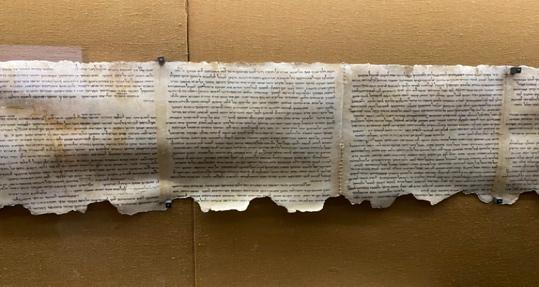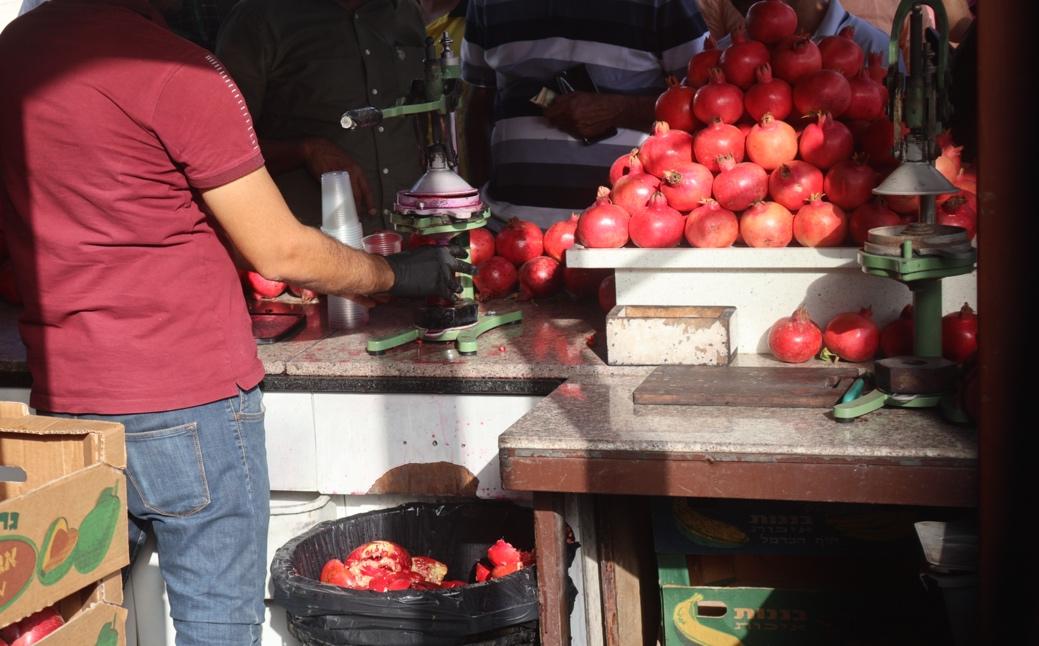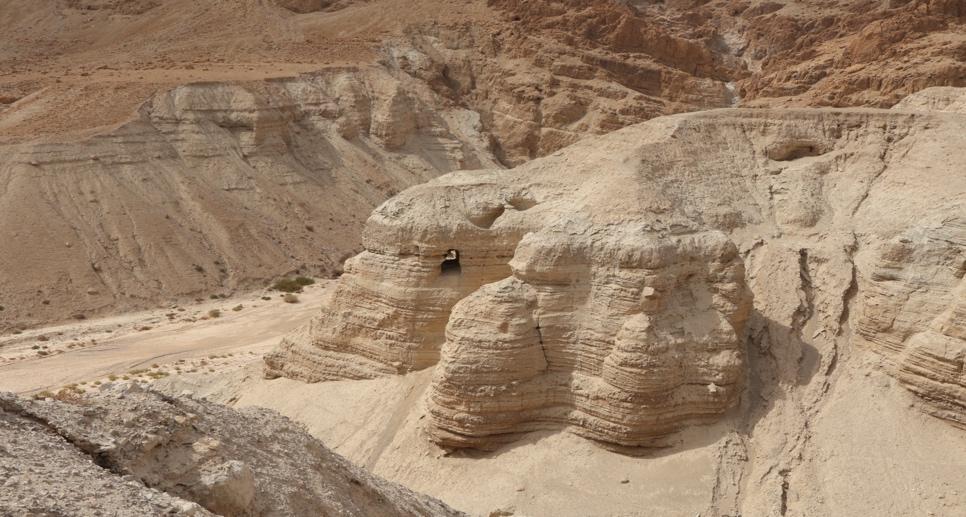To the places
Where the Word Became Flesh and Dwelt Among Us
Day 4: Jordan River – Kibbutz – Jericho – Qumran
If I had written a haiku about today it could have gone like this:
Tiny Jordan minnows
Eat my feet’s dead skin
Clean as baptism
After a dawn mass overlooking the Sea of Galilee we renewed baptismal promises in the Jordan river. It was sacred and playful, profound and light-hearted. Two pilgrims opted for full immersion but we all put on a white garment even just to have the river water trickle over our heads from a bowl. I stood in the water and felt little fish attack my feet, harmlessly I guessed, but reminding me there is some pain in nearly everything we do. The sense of a common discipleship is forming quietly and strongly among us. We find out in new ways each day how important it is to embrace our destiny. The stronger the presence, the clearer the call, the harder to define.
John the Baptist may have been a member of the extreme, ascetical Qumran community whose site in the Judaean Desert, near the Dead Sea, was destroyed by the Romans in AD68. Its members probably slept in caves, followed obsessive daily purity rituals and prepared intensely for the great battle between them, the Sons of Light, and the Sons of Darkness. After 200 years their destruction by the Romans was followed by one of the greatest diasporas of history, the long centuries of the wandering Jew. Before the end, they hid a large collection of scrolls in tall pottery jaws in a remote cave. In 1952 when the Jews were returning to violently reclaim their long-lost land a shepherd found the hidden texts which reshaped modern understanding of the Bible and early Christianity. The timing was significant for Judaism. For all humanity it catalysed awareness of the wells of wisdom we have hidden from ourselves but which promise us means for an essential and redemptive metanoia.

All visionary views run the risk of becoming fanatical. Unless some moderating, yet un-diluting, principle is also present, the dreamt-for revolution turns on and devours itself. You cannot argue with a fundamentalist once their views have been set. The only cure for fundamentalism is contemplation.
We had lunch at a kibbutz that has developed from the ideals of the communitarian movement that accompanied the early days of the Israeli state. Now it has adapted in ways that make one wonder, if the fanaticism of Qumran certainly betrays the ideal so too can adapting too far. Kibbutz members now pay for their meals in the refectory. Children are not raised in common. They have become privatised institutions. Possessions are no longer shared in the cause of the great equality of all. As our guide, who had been raised in an original kibbutz told me, ‘when you have nothing it is easy to share everything. Problems start when you have something’. A desert father lost his soul by secretly hiding one small coin under his mattress. Today every kibbutz member has a paying job in or usually outside the kibbutz.
Not far away, Jericho at 10,000 is the oldest city in the world. Its archaeological dig has unearthed layers of at least twenty-seven distinct cultural periods. For the early Christian readers of the Bible, Jericho represented the ‘world’ that entangles and corrupts us. In the story of Zaccaheus, the short corrupt tax-collector who climbed a sycamore tree to better see and hear Jesus underwent radical, liberating conversion. Extreme corruption breeds the opposite desire for purity of heart. But it is ever-opposed to Jerusalem, the city of God, where our pilgrim group reached this evening. Always between them and linking their opposition is the long, frequently congested highway of metanoia.

Above Jericho is the Mount of Temptation where Jesus fasted for forty days and was then challenged by the devil to surrender his spiritual freedom to the tyranny of his own ego.
The barren desert stretching out in all directions, the sea that is too salty to allow life, the steep precipices and deep, dry wadis, all in the lowest point on earth, the ideal place for a monastery. It clings miraculously to the mountainside and preserves the stone that Jesus sat on during his fast. Many monks lived in the caves surrounding the monastery, as in the Qumran community and the deserts of northern Egypt where the great Anthony and Cassian learned their monastic life.
Finally, We drank delicious pomegranate juice in a small café halfway up the mountain and we agreed it was easy to be tempted. The ego’s cleverest temptation is to persuade us we need glamorous outward extremes which will block the highway uniting the world and the kingdom and achieve our goal. Whatever that may be. Avoiding extremes, following the narrow path that leads to life, may lead you to wonder do we we have to achieve anything. We have only to fully be.
This is the slow baptism of the path of daily meditation.


Receive these in your inbox
Follow Laurence’s daily updates from WCCM Contemplative Journey to the Holy Land (2 – 11 October) by signing up to Daily Wisdom, a free email subscription that delivers a short, contemplative insight to your inbox every morning.





